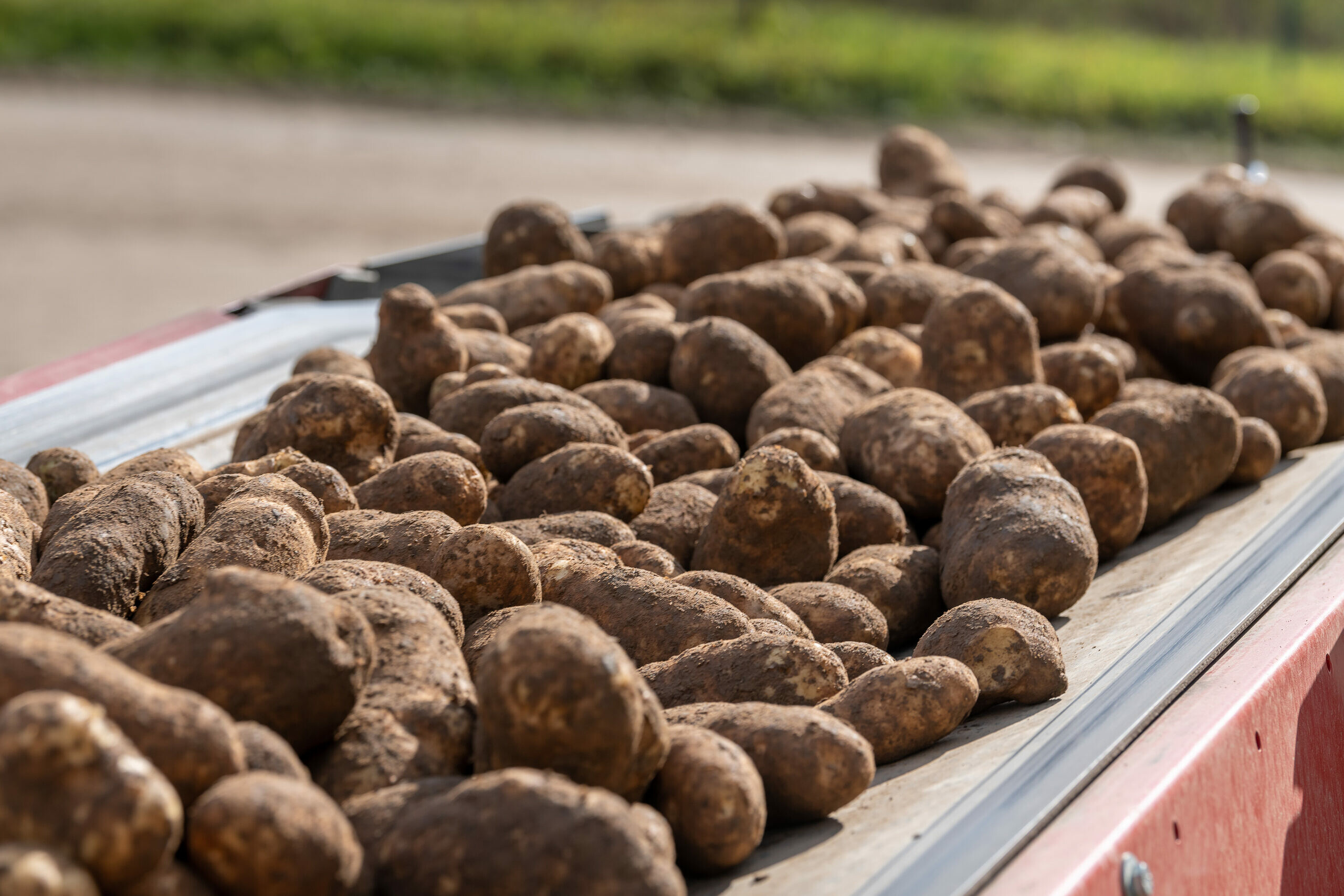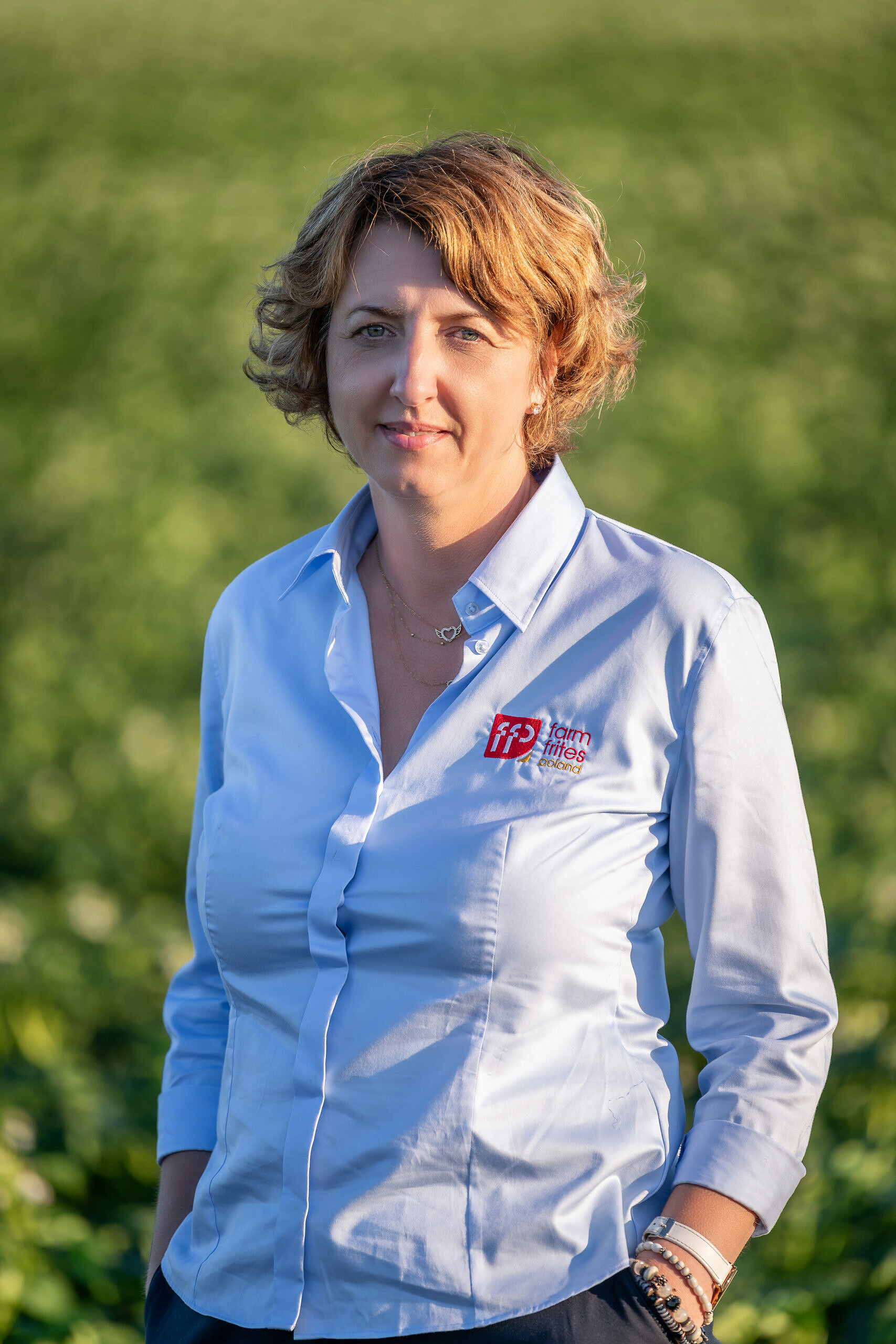Interview with Alina Menżyńska – Farm Frites Poland
16th November 2023

Overview
“As consumers, we want to know that the food we eat is healthy and that no one has destroyed the environment to produce it. The FSA is a great tool for evaluating suppliers of agricultural products. And as a company we work with our farmers to implement the FSA. This is the only way to success – commitment on both sides.”

SAI Platform member, Farm Frites Poland is a leading manufacturer of potato products since 1993. It takes pride in its commitment to quality and sustainability through the close collaboration with over 160 dedicated Polish growers who are farming almost 9000 ha. Supplying French fries to Aviko and over 900 McDonald’s restaurants across 10 countries, Farm Frites Poland’s success is rooted in the belief that responsible farming, guided by knowledge and respect for nature, is the key to producing high-quality products while safeguarding the environment.
Farm Frites Poland is has been a SAI Platform member since 2007 and uses the Farm Sustainability Assessment (FSA). Can you tell us why you use the FSA?
Alina Menżyńska: We supply French fries in over 10 European countries. Since the legal regulations and control systems are slightly different in each country, we need a universal verification system that is globally recognised. That’s why we chose the FSA. It is a system created by specialists, known to our customers, who are often also SAI Platform members. Thanks to benchmarking, we can compare standards between countries. In addition, the FSA determines the sustainability level of the farm (Gold, Silver or Bronze), which gives us a picture of the challenges farmers face.
How important is it for you to get farmers on board with Farm Frites Poland’s sustainability ambitions? What are the main challenges you face when it comes to farmer engagement?
Alina Menżyńska: The involvement of farmers in the FSA was not difficult in our case, because Farm Frites Poland pays more for potatoes from verified farms, so suppliers are eager to be involved. Furthermore, we prioritise long-term partnerships, and many of our farmers have been partners for nearly three decades, with some relationships now spanning generations.
Our goal is to have at least 95% of all raw material FSA verified. We want our farmers to reach FSA Gold Level and many of them do. The biggest difficulty, however, is continuous improvement. Reducing CO2 emissions by limiting the use of mineral fertilisers will be a challenge for us, because potatoes require high doses of fertilisers. It is a crop that is prone to diseases, but we want to find ways to reduce the number of chemical treatments, for example by replacing some them with biological ones. These are serious challenges, and we will be tackling them together with our farmers.
What role have partnerships played in achieving your goals? Are there any important lessons you have learned along the way?
Alina Menżyńska: As a company, we have a close relationship with suppliers. It’s much more than just buying and selling transactions; we view our farmers as partners. In most cases potatoes are bought directly from farmers, so the supply chain is noticeably short. Before the season starts, we sign contracts with farmers, so we know who will grow potatoes and where. This means that farmers know the price they will get and their delivery date. A team of seven agronomists from Farm Frites Poland visit the farmers throughout the season. Advice on the selection of varieties, visits to the fields during planting, vegetation, and harvesting, as well as training are an opportunity for us to share knowledge and exchange experiences.
What is next for Farm Frites Poland and the farmers you work with? What excites you about these goals?
Alina Menżyńska: A big topic for us and our suppliers is regenerative agriculture. We are working with our colleagues at Farm Frites in the Netherlands to develop a regenerative agriculture strategy for potato suppliers. The strategy is based on several pillars: fertile soil, rational use of water, protection of nature and biodiversity, cooperation, and knowledge sharing.
We participate in all the training, meetings and workshops organised by SAI Platform, to learn how others are adopting these practices. We want to offer farmers solutions that they will be able to implement at their farms and we hope that verification will be possible in the near future as a way of recognising the efforts of our farmers.
What advice would you have for companies considering using the FSA? What are the key success factors for driving change and delivering impact?
Alina Menżyńska: All food companies should strive to make the path from farm to fork fully traceable. As consumers, we want to know that the food we eat is healthy and that no one has destroyed the environment to produce it. The FSA is a great tool for evaluating suppliers of agricultural products. In our case, everything worked well because as a company we worked with our farmers to implement the FSA. This is the only way to success – commitment on both sides.
What advice would you have for companies considering using the FSA?
Alina Menżyńska: Economic viability is often overlooked in the pursuit of driving impact. Everyone needs to address this question at an early stage as this is key if we want to achieve scale and make a real difference. Sustainability needs to be affordable and create value for our investment. The FSA helps us to optimise our resources, a versatile and ‘pocket friendly’ option for everyone involved in the wider agricultural sector. Think about how you can use the FSA in your existing set-up to demonstrate your impact, and how it can help to direct your continuous improvement.